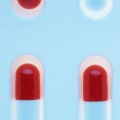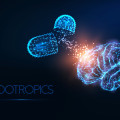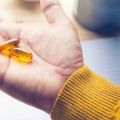Adaptogens (a term that is often used interchangeably with nootropics) such as fungi (reishi, lion's mane, chaga, shiitake) are used to improve cognitive performance, while taurine is a common amino acid that improves focus and flowering plant rhodiola rosea improves attention span, encouragement and ability to work. Here's a look at the 14 best nootropics and how they improve performance. Caffeine is the most widely consumed psychoactive substance in the world (. Caffeine works by blocking adenosine receptors in the brain, making you feel less tired (.
A low to moderate caffeine intake of 40 to 300 mg increases alertness and attention and decreases reaction time. These doses are especially effective for people who are fatigued (4, 5,. Caffeine is a natural chemical that increases alertness, improves attention and reduces reaction times. L-theanine is a natural amino acid found in tea, but it can also be taken as a supplement (.
Several studies have shown that taking 200 mg of L-theanine has a calming effect, without causing drowsiness (8,. Taking just 50 mg, the amount found in about two cups of brewed tea, has been found to increase alpha waves in the brain, which are related to creativity (. L-theanine is even more effective when taken with caffeine. For this reason, they are often used together in performance-enhancing supplements.
In addition, both are found naturally in tea (7,. L-theanine is an amino acid found in tea that can increase the feeling of calm and may be related to greater creativity. Its effectiveness is even greater when combined with caffeine. Creatine is an amino acid that the body uses to produce proteins.
After consumption, creatine enters the brain, where it binds with phosphate, creating a molecule that the brain uses to quickly feed its cells (1.This increased energy availability for brain cells is related to improved short-term memory and reasoning skills, especially in vegetarians and stressed people (12, 13, 1) Studies show that it is safe to take 5 grams of creatine a day without any negative effects. Higher doses are also effective, but there is no research on their long-term safety (1.Creatine is an amino acid that can improve memory and reasoning skills in the short term). It is more effective in vegetarians and stressed people. Doses of 5 grams per day have been shown to be safe in the long term.
Bacopa monnieri is an ancient herb used in Ayurvedic medicine to improve brain function. Several studies have found that Bacopa monnieri supplements can speed up information processing in the brain, reduce reaction times and improve memory (16, 17, 1.Bacopa monnieri contains active compounds called bacosides, which protect the brain from oxidative stress and improve signaling in the hippocampus, an area of the brain where memories are processed (1.The effects of Bacopa monnieri are not immediately felt. Therefore, doses of 300 to 600 mg should be taken over several months for maximum benefit (20, 2). Bacopa monnieri is an herbal supplement that has been shown to improve memory and information processing when taken for several months.
Rhodiola rosea is an adaptogenic herb that helps the body manage stress more effectively. Several studies have found that Rhodiola rosea supplements can improve mood and decrease feelings of exhaustion in anxious and highly stressed people (22, 2.Taking small daily doses of Rhodiola rosea has been shown to reduce mental fatigue and increase feelings of well-being in college students). during periods of stressful exams (2.Rhodiola rosea is a natural herb that can help the body adapt to periods of high stress and reduce associated mental fatigue. Panax ginseng root is an ancient medicinal plant used to stimulate brain function.
Taking a single dose of 200 to 400 mg of Panax ginseng has been shown to reduce brain fatigue and significantly improve performance in difficult tasks, such as mathematical mental problems (25, 26, 2.However, it is not clear how Panax ginseng stimulates brain function). It may be due to its strong anti-inflammatory effects, which help protect the brain from oxidative stress and improve its function (2). Some long-term studies have found that your body can adapt to ginseng, making it less effective after several months of use. Therefore, more research is needed on its long-term nootropic effects (2.Occasional doses of Panax ginseng may help improve mental function, but more research is needed on its long-term effectiveness.).
Extracts from the leaves of the Ginkgo biloba tree can also have positive effects on the brain. Ginkgo biloba supplements have been shown to improve memory and mental processing in healthy older adults when taken daily for six weeks (30, 31, 3). Taking Ginkgo biloba before a very stressful task also reduces stress-related high blood pressure and lowers levels of cortisol, a type of stress hormone (3.hypothesized that some of these benefits may be due to increased blood flow to the brain following Ginkgo biloba supplementation (3). While these results are promising, not all studies have shown beneficial effects.
More research is needed to better understand the potential benefits of Ginkgo biloba on the brain (3). Some research suggests that Ginkgo biloba may improve memory and mental processing and may be beneficial in stressful situations. Nicotine is a natural chemical found in many plants, especially tobacco. It is one of the compounds that make cigarettes so addictive.
It can also be consumed through nicotine gum or absorbed through the skin using a nicotine patch. Studies show that nicotine may have nootropic effects, such as improved alertness and attention, especially in people with a naturally impaired attention span (36, 3.It has also been found to improve motor function). In addition, chewing nicotine gum is related to better writing speed and fluidity (3) However, this substance can be addictive and lethal in high doses, so caution should be exercised (3). Because of the risk of addiction, nicotine is not recommended.
However, nicotine use is justified if you are trying to quit smoking. Nicotine is a natural chemical that increases alertness, attention and motor functions. However, it is addictive and toxic in high doses. Animal studies have shown that Noopept accelerates how quickly the brain forms and recovers memories by increasing levels of brain-derived neurotrophic factor (BDNF), a compound that promotes brain cell growth (42, 43, 4).
Human research has found that this smart drug helps people recover more quickly. of brain injuries, but more studies are needed to understand how it could be used as a nootropic in healthy adults (45, 4.It has been shown to improve memory in people with age-related mental impairment, but it does not appear to have much benefit in healthy adults (47, 4.studies suggest that piracetam may improve memory in healthy adults, but these findings have not been replicated (49, 50, 5.It is similar in structure to piracetam and Noopept and helps the brain recover from various injuries such as stroke, epilepsy and trauma (52, 53, 5.A study in rats found that phenotropil slightly improves memory, but there is no research to support its use as a smart drug in healthy adults (5.Commonly sold under the brand name Provigil, modafinil is a prescription drug often used to treat narcolepsy, a condition that causes uncontrollable drowsiness. similar to amphetamines or cocaine. However, animal studies suggest that it has a lower risk of dependence (57, 5).
Several studies have shown that modafinil significantly reduces the feeling of fatigue and improves memory in sleep-deprived adults (59, 60, 6). It also improves executive functioning or the ability to properly manage its time and resources to achieve your goals (60). Although modafinil is generally considered non-addictive, high-dose dependence and withdrawal have been reported (62, 6). It is most commonly prescribed to treat attention deficit hyperactivity disorder (ADHD) and narcolepsy, but more and more healthy adults are taking it to improve attention and focus (6) Adderall works by increasing the availability of brain chemicals dopamine and noradrenaline within the prefrontal cortex, an area of the brain that controls working memory, attention and behavior (6).
The amphetamines found in Adderall make people feel more awake, attentive and optimistic. A review of 48 studies found that Adderall significantly improved people's ability to control their behavior and improved short-term memory (6). Depending on the dose and type of pill prescribed, the effects last up to 12 hours (6). up to 43% of students use stimulant medications without a prescription (6) Side effects of Adderall abuse include anxiety, low sex drive, and sweating (70).
Recreational abuse of Adderall can also cause more serious side effects, such as a heart attack, especially when mixed with alcohol (71, 72, 7.Like Adderall, it is a stimulant and increases dopamine and norepinephrine concentrations in the brain). However, it does not contain amphetamines (7.In healthy adults, Ritalin improves short-term memory, information processing speed and attention) (75, 7.Like Adderall, Ritalin is widely used, especially by people aged 18 to 25). The most common side effects of Ritalin include insomnia, stomach pain, headache and loss of appetite (7) It can also cause hallucinations, psychosis, seizures, cardiac arrhythmias, and high blood pressure, especially when taken in high doses (79, 80, 81, 8). Krill Oil May Support Heart Health, Brain Health and Inflammation.
These are the 11 best krill oil supplements. This is an in-depth article on vitamin K2, an incredibly important nutrient that can have significant health benefits. Vyvamind is the best nootropic for focus. Contains ingredients that aim to increase energy, improve concentration and aid flow.
Vyvamind is a natural alternative to amphetamine-based Adderall that is formulated with safe ingredients that work in perfect synergy. Citicoline (sometimes known as CDP-choline) is a natural molecule that is vital for key neuronal functions, particularly those related to cognition, learning and memory. This is because citicoline quickly converts to choline once in the body. The good news is that, unlike other nootropic substrates, citicoline has been the subject of fairly rigorous scientific research.
This means that we are well aware of its effects, effectiveness, safety and best use. Human studies have highlighted that citicoline may have a beneficial effect on concentration, working memory and attention. B vitamins are the basis of good health. These vitamins are vital for a number of crucial cellular processes and, without them, both our brain and body can suffer.
Thiamin (or vitamin B) is an essential component of mitochondrial metabolism. As we all learned in biology 101, mitochondria are the “power plants” of our cells that produce the energy molecules needed to fill our cells. Cobalamin (or vitamin B1) has important responsibilities in our brain. Vitamin is known to be essential for the synthesis of DNA and RNA, which control the production of key proteins and neurotransmitters.
L-tyrosine is an amino acid that is a vital precursor to catecholamine neurotransmitters (such as dopamine and epinephrine). L-tyrosine can exert a particularly strong nootropic effect on mood due to its improvement in levels of the molecule L-DOPA, the precursor of dopamine. The neurotransmitter dopamine is closely related to stable mood, so L-tyrosine supplementation may offer a benefit to improve mood. However, dopamine involves more than just improving mood.
Animal studies also suggest that L-theanine may regulate levels of serotonin, GABA and dopamine 32, all of which may help balance mood. Mind Lab Pro is one of the best nootropics to improve memory, concentration, productivity and cognitive function. A doctor may prescribe a nootropic to treat a medical condition. The drug is usually a type of stimulant, such as an amphetamine, that can help treat ADHD, narcolepsy, dementia, or a similar condition.
A product like Performance Lab Nootropics aids in the repair and recovery of neurons, while Mind Lab Pro promotes brain health throughout the day. Now is your time to choose the best nootropic stack or natural drug that fits your needs and concerns. Synthetic nootropic supplements such as Noopept and Piracetam are widely available, but research on their effectiveness in healthy adults is lacking. The range of nootropics extends from controlled prescription drugs to naturally occurring supplements that can be purchased anywhere, such as caffeine.
Most natural nootropics focus less on the exact molecule that has a positive change and more on the ingredient itself. Some evidence suggests that people who use prescription nootropics to improve brain function are at increased risk of impulsive behaviors, such as risky sexual practices. We also want to mention that to get benefits from this nootropic, you will need to take an MAO inhibitor or smoke cigarettes in another way. One of the most popular nootropic supplements, caffeine, is found in many naturally occurring substances, such as coffee, cocoa, black and green tea, and soft drinks.
Adderall would actually be considered a synthetic nootropic drug, since the molecule is not easily found in nature. We recommend taking the powder form of these nootropic supplements, as it is much easier to adjust the doses and mix them into drinks than with pills. When stacking nootropics it is crucial that they are taken together, so make sure you know which ones can be used simultaneously like others. However, the American Medical Association has reported that several products advertised as nootropic supplements have not been examined in terms of safety and efficacy.
Nootropic supplements represent the category of nootropics that can be easily taken without a prescription to help maintain focus and concentration. Noopept is a fast-acting synthetic nootropic that can improve memory by increasing levels of BDNF in the brain. Because nootropic drugs such as Adderall are controlled substances due to their addictive nature, you can only receive the medication under the supervision of a doctor and only if you have a mental health condition that could benefit from treatment. .
.




